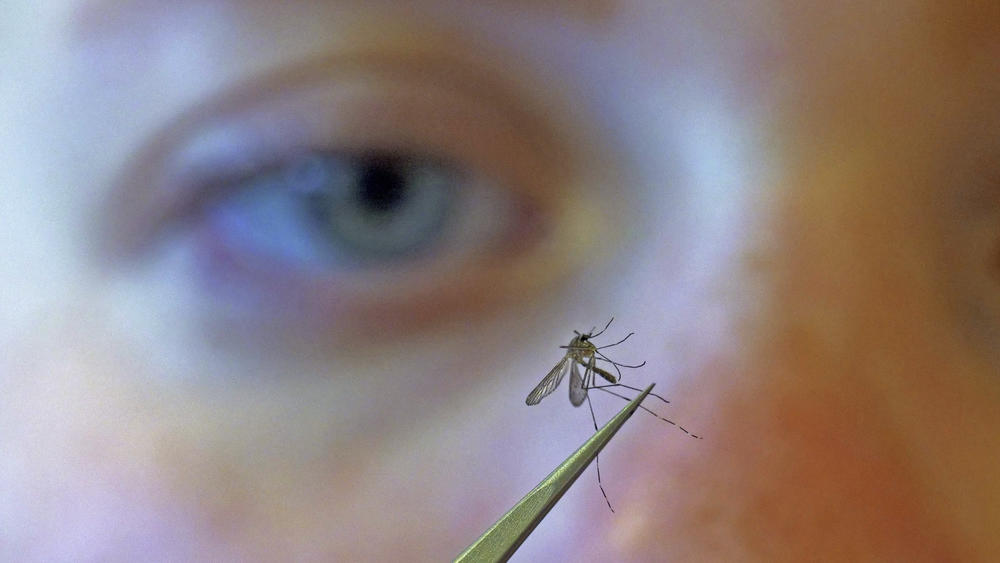Section Branding
Header Content
GSU Researchers Identify Protein That Could Unlock West Nile, Zika Virus Treatments
Primary Content
A research team at Georgia State University is gaining greater insight into mosquito-borne illnesses.
A biologist at GSU said his team found a protein that, when modified, stops the spread of Zika and West Nile viruses. Dr. Mukesh Kumar said that’s important because global warming is expected to make mosquito-borne illnesses worse over time.GSU biologist Dr. Mukesh Kumar says global warming is making mosquito-borne illnesses more prevalent, but a protein his research team identified might help stop viruses such as West Nile and Zika. GPB's Ellen Eldridge reports.
"We know that in Atlanta and in Georgia, you only have a huge amount of mosquito population," Kumar said. "So probably we will see more cases of these mosquito-borne viruses."
The Georgia Department of Public Health said there have been 10 cases of West Nile and 5 cases of Zika this year. The first sexually transmitted case of Zika virus in Georgia was confirmed in 2016.
Most people who get Zika or West Nile don’t get sick because of to the body’s natural immune response, therefore, many don't know they’ve been infected and their cases are less likely to get reported.
Kumar's team found that Z-DNA binding protein 1 (ZBP1) is, "a sensor that plays a significant role in triggering a robust immune response when it detects a viral infection within cells," GSU said in a news release.
The Georgia State study, published in the journal Frontiers in Microbiology, found ZBP1 is essential for restricting both West Nile and Zika virus replication, and that it prevents West Nile-associated encephalitis (inflammation of the brain) in mice. The study found that when this protein was absent in studies conducted on mice, all the mice died when infected with even a non-disease-producing strain of West Nile virus.
Those with severe symptoms would be most helped by manipulating this protein. Kumar said that's because most people don't feel as sick and don't go to the hospital right away.
Additionally, manipulating ZBP1 could lead to a vaccine as well as a way to treat outbreaks.
West Nile Virus is the leading mosquito-born disease and cause of viral encephalitis in the United States, with more than 50,000 people affected, including 480 cases reported in Georgia, according to the Centers for Disease Control and Prevention. There have been 2,330 associated deaths since it first reached the country in 1999. The Culex species of mosquito responsible for spreading it is common throughout the world.
Zika can cause serious neurological diseases such as Guillain-Barre syndrome, which causes the body’s immune system to attack the nervous system. Birth defects such as microcephaly, an abnormally small head and brain can result.


